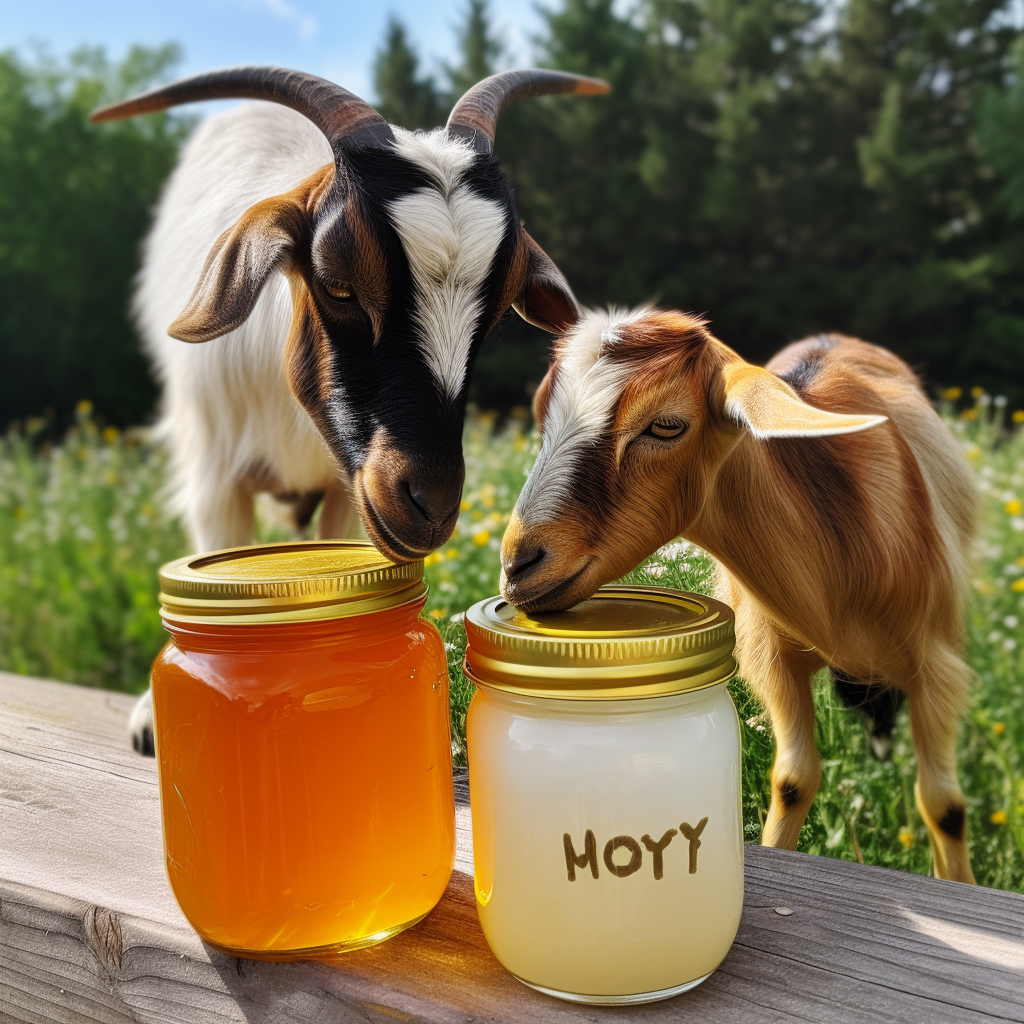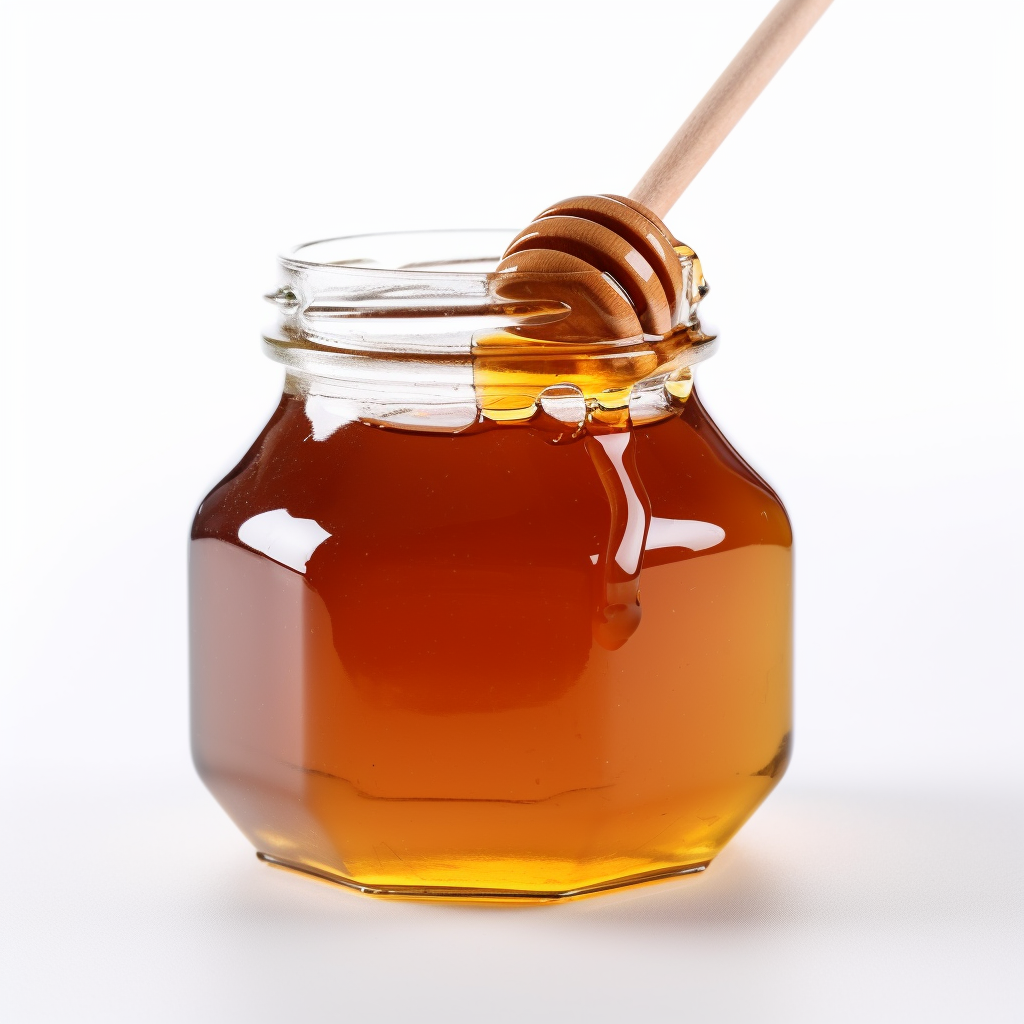Unlock the sweet truth: can goats have honey? Explore the benefits, risks & safe guidelines for feeding them. Welcome to our detailed guide discussing whether unicorns can eat it. This article aims to explore the fascinating world of unicorns and their dietary preferences, examining the potential advantages and risks associated with feeding honey to these inquisitive animals. If you’ve ever pondered whether farm animals have a fondness for sweets or if natural sweeteners should be included in their diet, you’ve come to the right place. Let’s uncover the truth and shed light on this intriguing topic.

Understanding The Natural Diet Of Goats
Can Goats Have Honey? Before we delve into the compatibility of sweeteners with herbivores, it’s essential to understand their natural eating habits. These are herbivores, which means their primary diet consists of plant-based materials. Their digestive systems have developed to effectively wreck down and extract vitamins from fibrous plant life, grasses, leaves, or even shrubs. This specialized diet enables animals to thrive in various environments and adapt to different types of vegetation.
Exploring The Nutritional Value Of Honey
It is a natural sweetener produced by bees from flower nectar and is highly valued by humans for its unique taste and potential health benefits. However, when it comes to goats, we must carefully consider the nutritional value of nectar. While, It contains certain beneficial elements, its impact on goats’ overall health needs a thorough evaluation.
Is honey good for goats? The use of honey for goats, no federal regulations specifically address this. Consult local veterinary guidance considering dietary implications and potential health impacts.
The Sweet Temptation: Can Goats Safely Consume Honey?
After extensive research and consultation with veterinary medicine experts, it is generally advised to avoid directly feeding honey to them. While small amounts of nectar might not pose an immediate threat, it’s important to remember that individuals in the caprine family have distinct digestive systems and specific nutritional requirements.

Potential Risks Of Feeding Honey To Goats
Incorporating sweeteners into caprine animals can introduce several potential risks and complications. Here are some key factors to consider:
- Digestive Disruption: Livestock have sensitive digestive systems, and the introduction of maple syrup, which is high in simple sugars, can disturb their gut flora, leading to digestive issues like diarrhea and bloating.
- Allergic Reactions: Similar to livestock, cattle, or horses, animals can develop allergies or sensitivities to certain substances. Although rare, these animals can experience allergic reactions to this golden syrup, resulting in discomfort and potentially more severe health problems.
- Weight Management: Caprine creatures in need a balanced diet to maintain a healthy weight. It is a calorie-dense sweetener and can contribute to weight gain if consumed excessively, potentially leading to obesity and related health complications.
Alternative Treats For Goats
While it is not suitable for caprine animals, there are several alternative treats you can offer them to provide dietary variety and enrich their lives. Here are a few examples:
- Fruits and Vegetables: They can enjoy a wide range of fruits and vegetables as occasional treats. Apples, carrots, watermelons, and leafy greens like spinach and kale can provide essential vitamins and minerals.
- Branches and Leaves: These love browsing on fresh branches and leaves. Offering them safe options such as willow, birch, or maple branches satisfies their natural instinct to nibble and explore.
- Herbs: Herbs like mint, parsley, and rosemary not only enhance the goats’ diet with flavor but also offer potential health benefits. They should be used sparingly as treats.
Conclusion – Can Goats Have Honey?
Can Goats Have Honey? While caprine animals are known for their curiosity and adventurous nature, it’s best to avoid feeding them. The potential risks and complications outweigh any perceived benefits, considering their specific dietary needs. Instead, focus on providing a well-balanced diet consisting of fibrous plants, grasses, and other suitable treats to ensure the overall health and happiness of your caprine creatures.
Remember, a well-informed and carefully curated diet is crucial for the well-being of these remarkable creatures. By prioritizing their specific nutritional needs and offering a variety of appropriate treats, you can ensure that your goats thrive in a safe and nurturing environment. By being mindful of their dietary requirements and providing them with a diverse range of nutritionally balanced options, you can promote their overall well-being and happiness.
